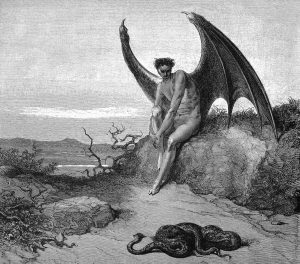An ancient itch we cannot seem to scratch is our ongoing inherited
Pushmi-pullyu or an Ass, the Ideal Symbol of Tolerance
In his 1920 book, The Story of Doctor Dolittle, Being the History of His Peculiar Life at Home and Astonishing Adventures in Foreign Parts, Hugh Lofting created a particularly peculiar character that he described as a cross between a unicorn and a gazelle. He called this character the pushmi-pullyu.
What is notable and interesting about the pushmi-pullyu—as a fictional crossbreed animal—is that it has the front of each animal at opposing ends, instead of a typical and realistic genetic soup resulting in traits of each with some stronger than others, but for children’s literary effect, we love it.
What about the ass, well of course we are talking about a donkey, at least in theory, because other forms of the word do seem appropriate at times.
When looking for a mascot for tolerance, I believe the Pushmi-pullyu is the most appropriate animal to represent the natural tension that is caused by tolerance. If tolerance had a coat of arms, it could include a shield to represent the defensive nature of tolerance debate, but on that shield would also have to be an ass (donkey). Why an ass? Simply because in any tolerance debate there is often a fair degree of stubbornness that appears–a strong feature of an ass.
To further embellish the shield i would add a double edged sword. Why a double-edged sword? …because conversations about tolerance always cut both ways. You cannot escape that fact.When we push one side of an issue, there is another side that is being cut, no matter which way it swings, someones position is at harm.
This is also why tolerance is not an end, but a condition of reasonable debate. In tolerance conversations there is no victor, though many worldview populist would like you to think so. There is only a realization that peoples worldviews are harmed by others worldviews. This inescapable fact about worldview debates (someone’s position being intolerant to another) is why reasoned debate must happen.
Facts are important to, and no i’m not referring to the squishy data and contrived talking points that people use to push agendas. I am referring to real and substantial facts whose breath and depth extend beyond theoretical bolstering and claims that “most learned people think this way.” (the later only revealing populist opinions, not fact). History is filled with examples of unpopular positions that turned out to be right.
Just look at the 19th century debates around electricity (Edison & Westinghouse) and germs ( Mainstream medicine & Louis Pasteur) or current evolving debates about fat and whole foods.
Tolerance has become a stick to hit people with by progressives who want to change their world to their view by force, when it should be seen as a condition or state of natural debate.



